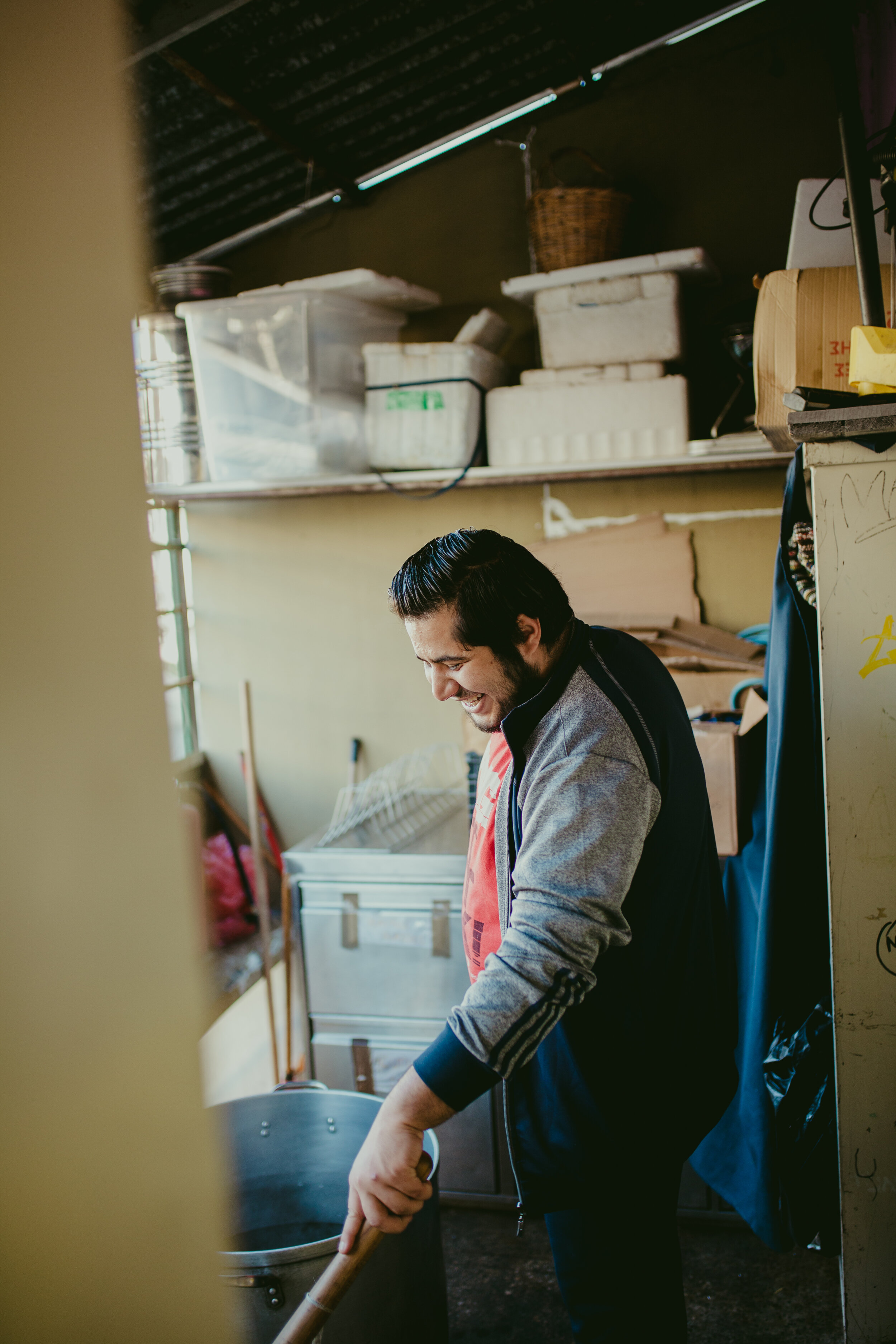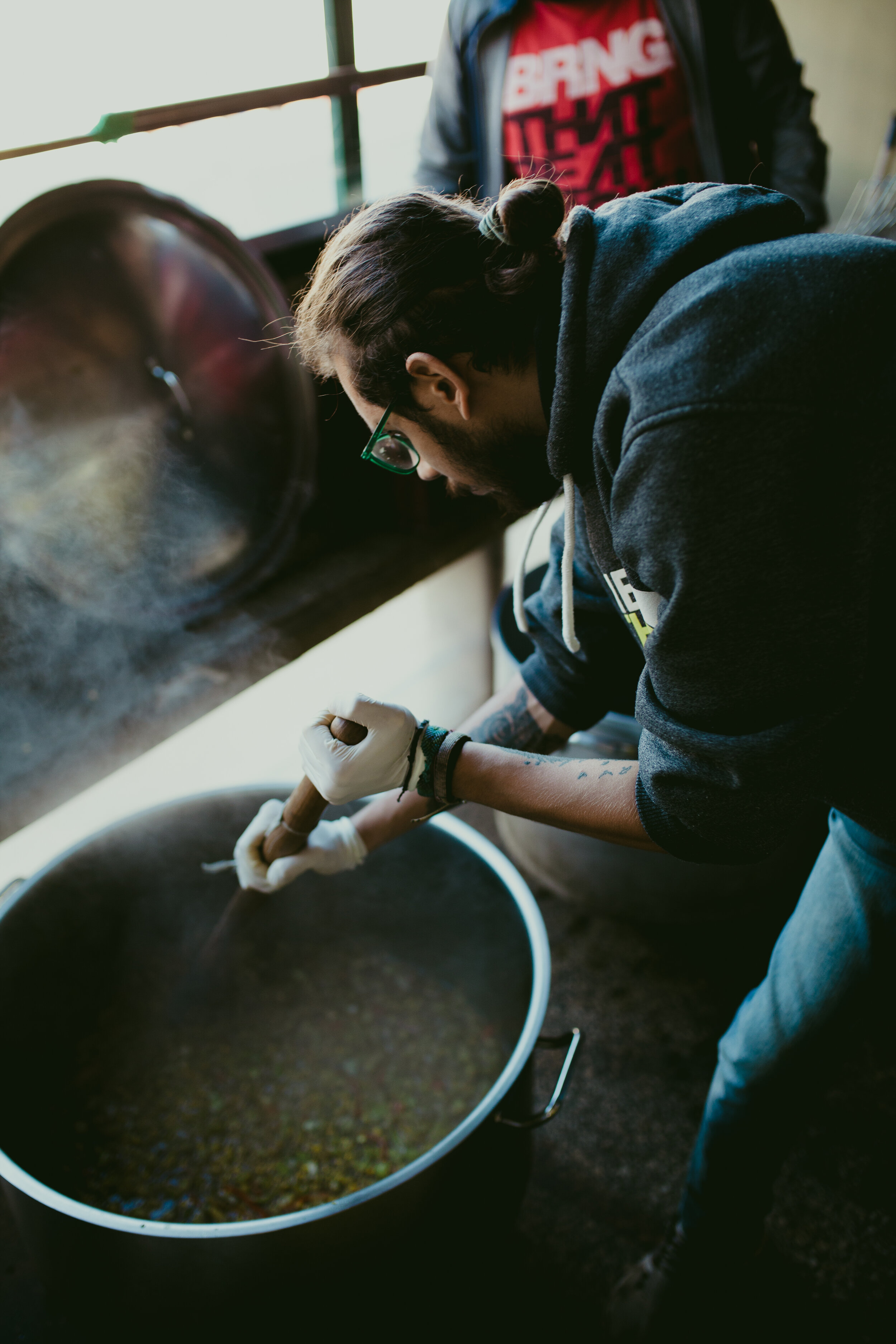
Living in the Inbetween
This body of work was captured during October 2018 when I visited Thessaloniki, Greece to explore the motivations of volunteers at the sharp end of the refugee and migrant crisis.
I’d began my work with IndiGO Volunteers and their team (Holly, Ellsie & Tas) at their office in the city centre. This charity matchmakes volunteers with organisations who provide relief services all over the world. Following IndiGo, I worked with DocMobile, Soul Food Kitchen and Lifting Hands International who have established a vital presence of support in the city.
War, oppressive governments, human rights violations and slowing economies have helped fuel over 1.8million people coming to Europe from the Middle East and Africa since 2015. The UN has called this the biggest crisis the modern world has ever seen. The crisis is gripping Greece at a time when it is already suffering, its economy in turmoil.
My work explores the people at the frontline, those who sacrifice their time, energy and money to provide relief for people in crisis.




“You know who caused the crisis? The banks and the politicians. They are keeping Greece like this, broken.”
— George
It was after settling in to my accommodation and exploring the urban landscape with its crumbling walls and derelict buildings, that I met myfirst character in this story. I happened across George who introduced himself to me. We walked together for some time, where I shared my reason for visiting and he relayed a story of a broken country forced to its knees by corrupted officials.

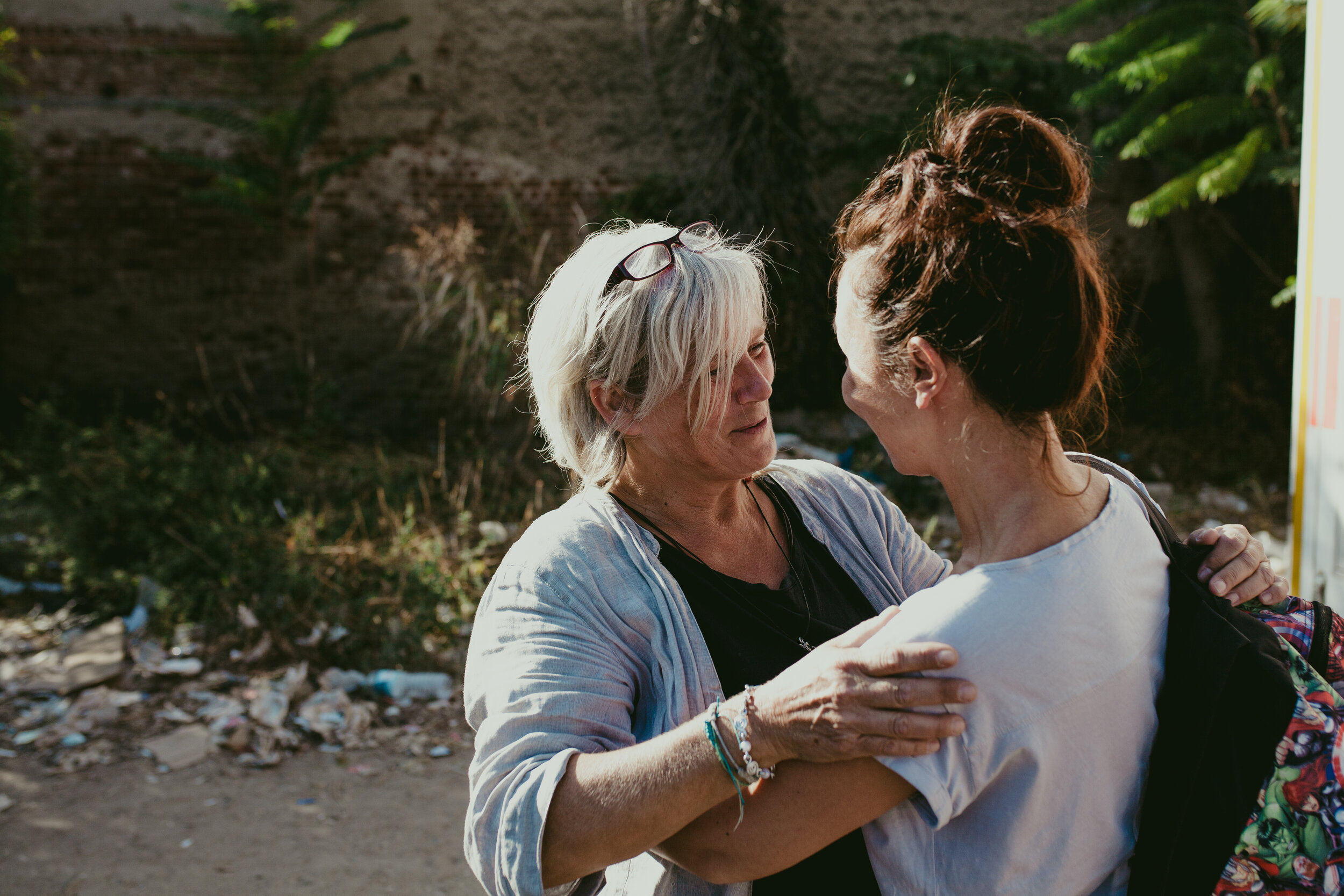


Mama to the People
I was meeting DocMobile, a medical treatment charity which has been here treating hundreds of people in need. I had arrived to the muster point which was a wasteland of dust and dirt, surrounded by derelict buildings and piles of rubbish. A stray dog laid in the road just out of the scorcing sun.
When the team arrive, it draws people out of the landscape, some in need of treatment, some just to reunite with this very special team. It’s formed of doctors, paramedics and nurses, gathered here from around the world. They’re treating everything from sores to sepsis to scabies.
Everyone is as warm and friendly as you’d expect, and none more so than Rose - known affectionately by the patients as Mama. She exudes an incredible warmth and passion for what they’re doing here, full of life and vigour. She says she’s here because people are suffering.
I speak to refugees, most fleeing the oppression and violence of Syria and Afghanistan. A young Afghani man tells me how much he wants to get to London, he believes it’s safe there. I can’t photograph him because he’s running from the Taliban.
I meet Valeria, she’s a doctor with an ambition to join UNICEF. She’s finishing her two weeks here, flying to the Lebanon the next day toprovide frontline care. This is what she always wanted to do - to be at the coalface of humanitarian aid.




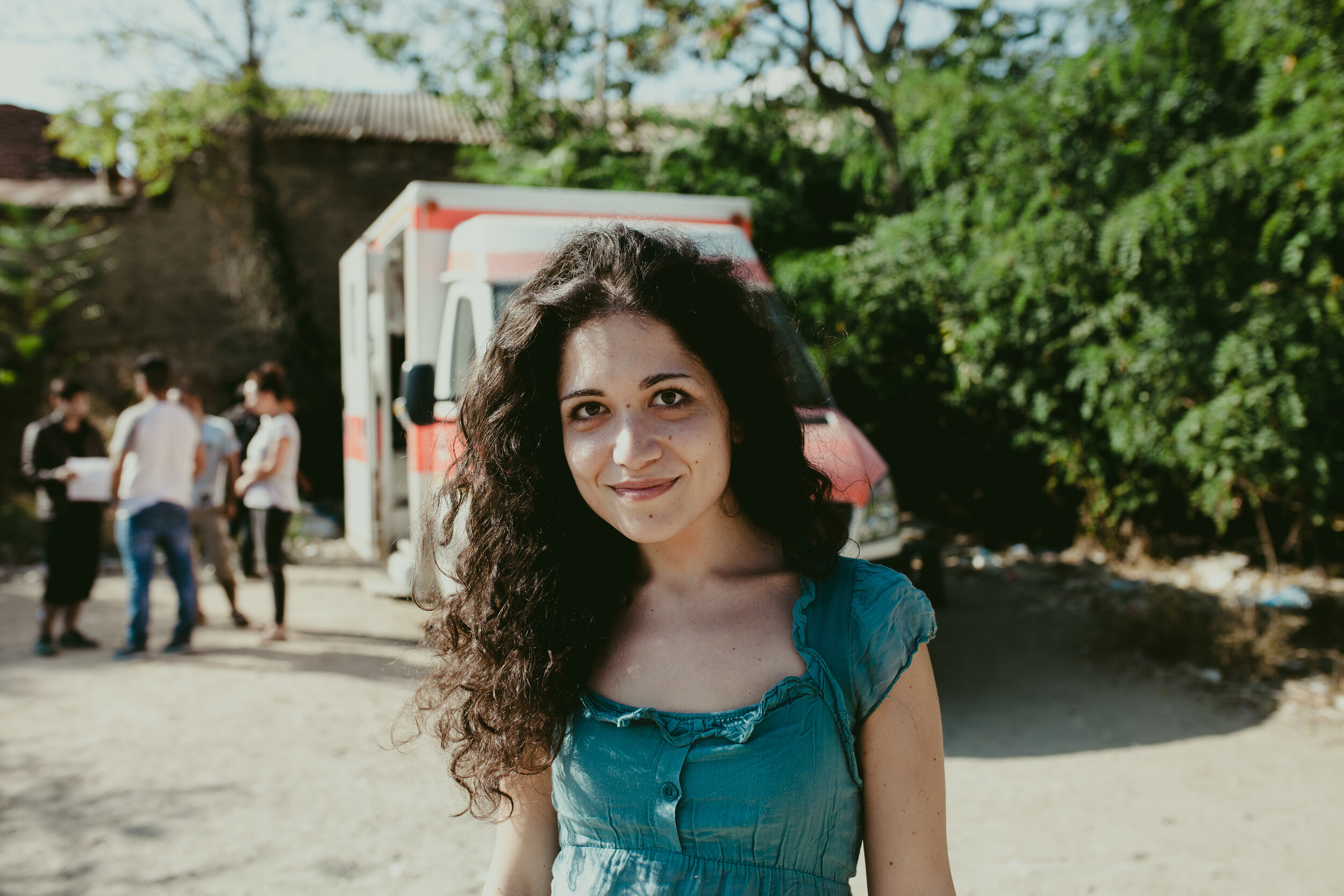

Concrete & Limbo
Mama took me to the unfinished concrete structure nearby where many of the refugees and migrants were staying. They have nowhere to go, so they stay in the abandoned places littered around the city. There’s no water or facilties, no windows. It’s as exposed as they are. Right now, the weather is good, but when the winter creeps in, these people will suffer more.
The sun pushes through the gaps between the crossbeams and the pillars, giving a warmth that’s matched by everyone I come across. They’re all eager to shake my hand and tell me their story.
I’m told that the night before, the police arrived and threw everyone out onto the streets. They beat them, they threw away their posessions, they took away bedding and aid provided by the UN and NGOs. They had nowhere to go, so once the police left, they returned to the structure.
That morning, the police came back.
What strikes me most is the state of limbo; these people, with all they’ve gone through, are stuck. Unable to work, unable to travel, unable to stay in buildings unused, unable to possess the most basic things.



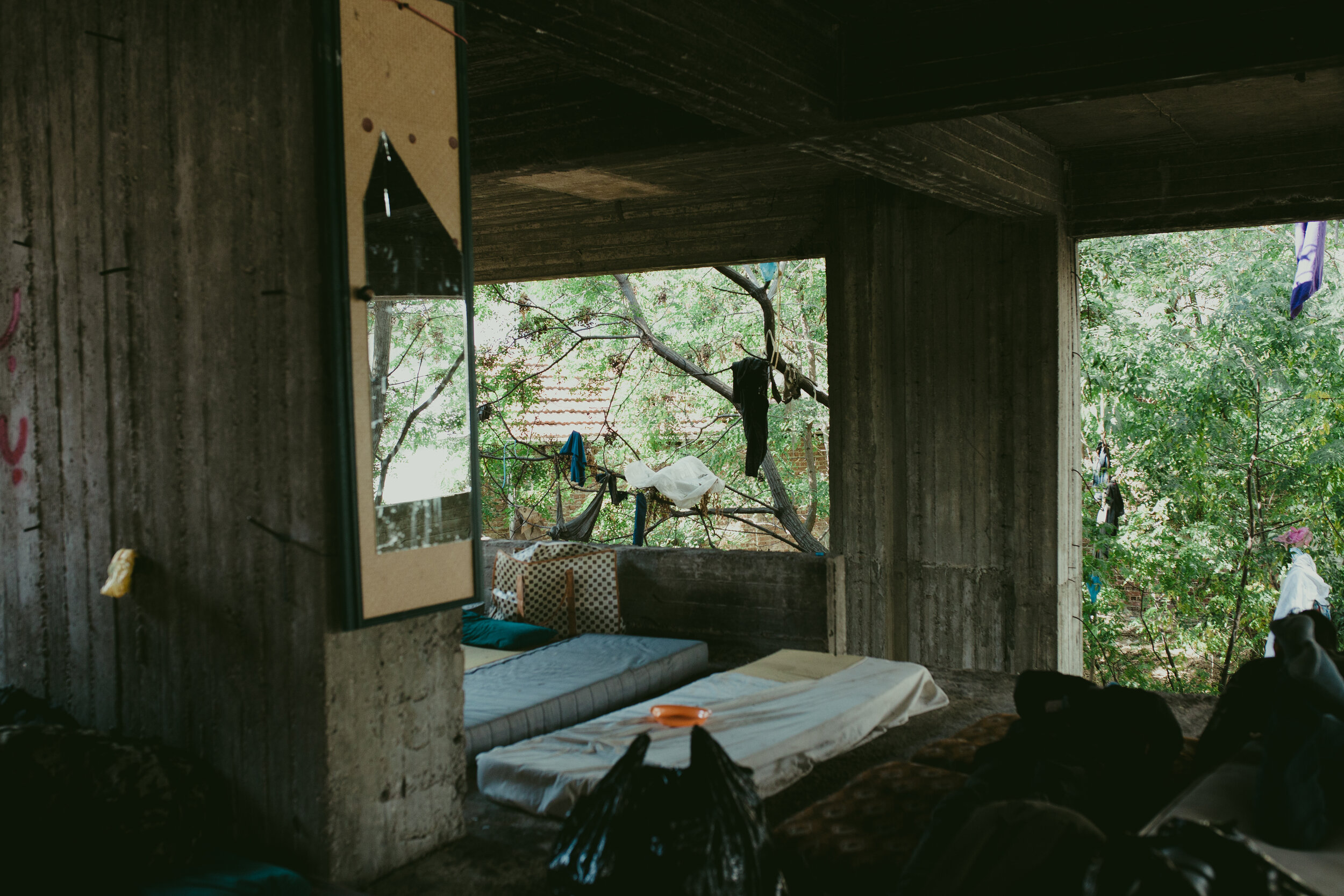

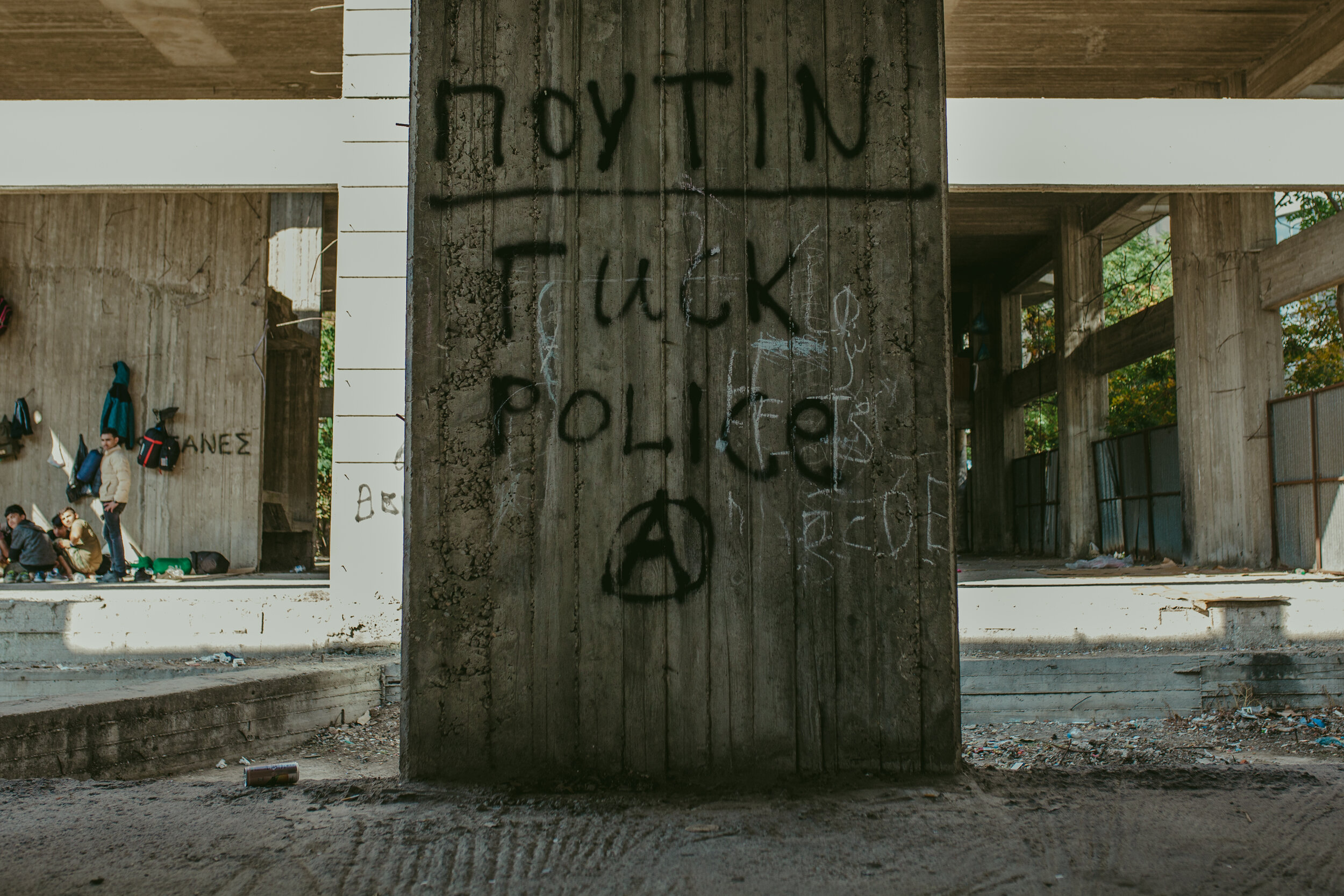
Soul Food Project work 24 hours to provide food to the people on the streets. Led by Mohammad, an Iraqi who fled his country during the first war. He’s a highly qualified civil engineer, and now spends his time giving back. He’s welcoming, compassionate and has a great sense of humour. I try the food and it’s spicy as hell. They all laugh and say I have English taste. His team is made up of people like Jlal, a Moroccan asylum seeker who left his country because of how his government treated its people.
“I’ve just spent three weeks in Moira. The camp is made for 3,000 people but there are 9,000 at the moment. Only a third of people are fed every night. There is disease, violence and constant waiting. The first word people learn when they arrive is ‘wait’ because it is what they are told over and over. Wait, wait, wait.”
— Ivan
I met Ivan at a point of respite after weeks in the pain of the Moira camp on Lesbos. His job was to only let people critically ill or dying into the clinic. He doesn’t have a medical background. Ivan wanted to share an experience he had there, no matter how much it upset him to recount it.
“There was a girl who was carried to the clinic. She was unconscious, she had cut her wrists. There was blood everywhere. The doctors were too busy and our ambulance had left. They tried to stop her bleeding and we put her into a van. I drove as fast as I could to the hospital. When I opened the doors, she collapsed onto me, there was so much blood. I rushed her into the hospital, shouting for help. I stayed with her until she opened her eyes. Then I drove back to carry on.”
Maria
Lifting Hands International are rebuilding a community for the Yazhidi, a small tribe who were subjected to geocide, torture and rape in their homeland of Iraq. Not many of them are left. They have their own dedicated camp after being persecuted in the others. Their camp is full, but another forty Yazhidi are arriving everyday, straglers reuniting.
People like Ivan, Maria, Cat and Niambh are teaching languages, sexual health and human rights. They’re guiding people through the asylum process, creating art projects and beyond, but everything they’re doing is more than that; they’re providing a place of safety and community - something these families haven’t had for some time. Their efforts go beyond their actions. They are giving assurance that humanity exists here.
“We have the privilage, so we have a duty to do something.”
— Valentino
I met Val when the IndiGO team got a group of volunteers together for drinks. It was the night I learned about The Dubs Amendment, danced in a Greek bar and felt incredibly humbled to be with people giving-up their lives back home to go where they are needed for such important work.
I witnessed extraordinary acts of kindness from ordinary people. They are just like us, but drawn here to help because every fibre of their being demands it. To give power and meaning to people without it and to inspire others to do the same. Everyone here is in this void, full of strife and agony and love and warmth and care and joy. They are all, inbetween.
The Organisations
Thank You
Thank you to Harriet Bisdee-Ward and Iona Westlake whom, without their help, none of this would be possible. Thanks to Seb, Ollie and Dave from The Pilcrow, Holly Penalver, Ellsie Hewer, Tas Economou,Rose, Lisa Linpower, Diana Whiteside, Sarah Amin, Freya, Shafiq Khaksar, Valeria Cagnazzo, Mohammad, Jlal, Valentino Velasquez,Ivan Romero, Cat McLaughlin, Maria Fountatzii and George Vakos.





